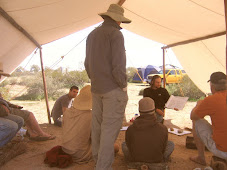 |
| Me on the Optimal Diet |
During the Optimal Diet, I began to tweak my mealtimes to see whether or not my symptoms were fully attributed to the digestion and absorption of my food. I experimented with one meal a day, which was easy to do and get adequate calories from since the foods I was eating were so low in fiber and very calorically dense. As I had expected, my symptoms suddenly became isolated to certain times, depending on when I ate.
First, an hour after eating, my chest would usually begin hurting and feeling tender and then subside over another hour. Also during this time, I would often get a headache and a bit of lower abdominal discomfort along with a unique "pins and needles" feeling in my chest/upper abdomen. About 8-10 hours after the large meal, in addition to bloating, I'd feel heaviness come over me in the form of shoulder, abdominal, and -- oddly enough -- left calf tension. From my studies of human digestion, I knew this is when the food would have been traveling through my small intestine (food typically empties from the stomach in 3 hours). So I thought maybe something was wrong with that part of my GI tract, but had no clue what it could be. Sometimes the abdominal tension (which felt like a rock) would be so bad that it would "push up" my stomach, and I'd actually have to vomit. Taking the experiment further, I learned that if I fasted for a day, I would feel absolutely amazing the entire next day. Upon eating again, I'd experience some "tender chest" pain, but no "pins and needles," headache or lower abdominal discomfort. I realized after eating the next day and then feeling those symptoms coming on that they were actually happening 24 hours after my last meal. I came to call these the "24 hour symptoms" as a result of this discovery. The "8-10 hour symptoms" consistently happened the same time after mealtime.
So I had my answer. My detective work paid off. It was all digestive. It wasn't "all in my head" as some of my close friends and family suggested. It wasn't due to poor posture or not exercising enough. It wasn't because I was some kind of hypochondriac. It was because I had friggin' digestive problems.
 |
| Abdominal/Pelvic CT scan |
At this point, some of you may be thinking, "Ryan, why the heck didn't you just go to a doctor to diagnose all of this?" Well, I did. I saw quite a few M.D.'s, Naturopaths, and body workers, and they all provided some pieces of the puzzle, but I never got a definitive answer from any of them. I was subjected to various tests, as well -- barium swallow abdominal/pelvic CT scan, gall bladder ultrasound, and stool/blood analyses of all kinds -- and nothing informed me that I had specific digestive problems. Yet, here I was with direct experiential proof that all of my symptoms were, in fact, digestive.
I felt defeated, worn out -- ready to be done with these problems that plagued me over the years. I knew I was having GI problems, and I had tried the herbs, enzymes, HCL, etc., etc., and the only thing that worked was to either eat nothing or eat less. And to do that meant I would be back at an unhealthy weight, feeling weak and hungry. Wonderful. I was stuck with this sh*t. But I wasn't ready to give up. In fact, I was entirely prepared to do whatever it took to get well again. Onward into the fascinating world of *drumroll* fecal bacteriotherapy. Say what?! Yes, this is where it gets interesting, folks.
Part 7 coming up next. Warning: May not be suitable for the squeamish!
.




